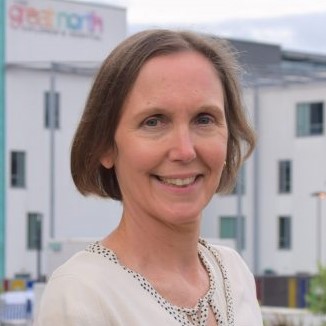Interview with Professor Deborah Tweddle, Newcastle paediatric ECMC
Interview with Professor Deborah Tweddle Professor of Paediatric Oncology at Newcastle
 Could you tell us about your background and how you first got involved in working in the Teenagers & Young Adults (TYA) field?
Could you tell us about your background and how you first got involved in working in the Teenagers & Young Adults (TYA) field?
I’m an academic paediatric oncologist with a clinical and research interest in the childhood cancer neuroblastoma. I first got involved in the TYA field when I became the scientific director of the children’s cancer & leukaemia group (CCLG) tissue bank in 2016 as we really wanted to expand biobanking to the TYA community but soon became aware of the various challenges it involved.
Why did you get involved in the ECMC TYA project and what’s been your experience so far?
I got involved in the TYA project from my interest in biobanking as I was keen to see TYA biobanking recruitment improve so that much needed research could be carried out on TYA cancers. My experience so far is that it has been hugely rewarding to meet so many different people who have the same goal to improve biobanking in this age group but need to have the processes and procedures in place to do so.
From your perspective, why is it important to improve access to clinical trials and biobanking for TYA patients?
Without access to clinical trials and improved biobanking in TYA patients we won’t be able to make advances in the way these cancers are treated or understand why young people get cancer. I think it’s really important to lower age limits of some adult cancer trials to include TYA patients with that tumour type so that they have access to the best treatments available, but equally important to understand why they have occurred in this age group, and for that collection of tumour material for rigorous scientific study is essential.
What impact do you hope this work will have for TYA patients and for the wider work of the ECMC network?
I hope that as a result of all the TYA workshops and initiatives that have taken place over the last 12 months we have been able to raise awareness of the importance of inclusion of the TYA community within the ECMC networks so that within the next round of adult and paediatric ECMC funding we can improve trial recruitment and biobanking within the TYA group.
If you wanted people to have one take home message about this work what would it be?
For TYA biobanking to improve in the UK we need to have a biobanking “champion” in each hospital where TYA are diagnosed and/or treated so that we can really make this happen.
